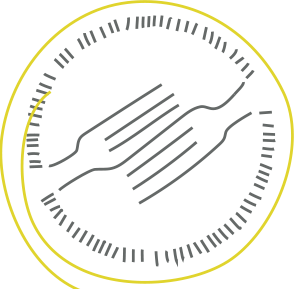What??? “Real Food Isn’t Designed For Us”
Partaking in social media is one of my necessary evils. Likely many 40-somethings feel the same way—we were just not raised on this kind of communication. But as I try to get into the groove for this nouveau kind of gab, posting information on food matters that move me (good or bad) seems to be my shtick.
Food Navigator (offering the latest and “greatest” news on food and beverage development) recently featured this article—So Soylent Secures $20M…Money Well Spent? Have you ever heard of Soylent? If not, front and center on their website is “What if you never had to worry about food again?”
And, “Soylent™ was developed from a need for a simpler food source. Creator Robert Rhinehart and team developed Soylent after recognizing the disproportionate amount of time and money they spent creating nutritionally complete meals.” The slightly freaky Wall-E-like video on their website states that Soylent began as an idea to create the ultimate food, not to replace food but to develop a better alternative to what we normally eat. Yet another liquid meal!!!
My first thought—unintended consequences. I am a disciple of the late Annemarie Colbin, PhD, author of Food and Healing and founder of Natural Gourmet Institute. Very simply, eating a variety of real whole foods (and cooking) is central to overall health and wellbeing. So my question to these Soylent “superheroes”: Do you realize (and do you care) that you are perpetuating the problem—the utter disconnect between humans and real nourishment (which has effectively been real food since the beginning of time)? And to the investors, WTF!?! I can think of 100’s of more valuable food-related ventures to invest your money in (that is, if you really give a hoot about human health).
So, in a calm but thoughtful fury I posted the noted article on Twitter with a very important question: What has happened to our food value system? Then @VenturesTelstar (aka “IdiotFace”) replied: “We have 1000s of food choices but before Soylent zero of them were cheap, fast and healthy. Think about that.” For more of the exchange read below—and I urge you to do so…
Needless to say, this digital dialogue struck a very deep chord with me. “Real food isn’t designed for us?” Hmmm. Have I missed something? I have spent my life in the kitchen and have devoted my career to teaching people how to connect with food to achieve nourishment. And I do so, knowing first hand that real food can heal—bringing people back to this concept prompts tremendous emotional and physical repair.
Although Soylent is a food product (classified as a food, not a supplement, by the FDA—imagine that!?!) and is designed for use as a staple meal by all adults (each serving providing maximum nutrition with minimum effort thanks to the wizardry of Reinhardt and his team), it is NOT the solution for ideal human nourishment. This is…
Back to 20-something Reinhart, an apparent “lifehacker”—one who devises tricks to streamline the obligations of daily life, thereby freeing up time for more desirable things. Is this the end of food? I am all for progress (and to each his own) but there is nothing good that can come out of disconnecting from the life force that truly nourishes living systems and humanity. Soylent will have great negative consequences but I am just not sure what they are yet. Perhaps hacking life is not the answer, living it is. But hey, if you want to replace your food with something that is “One step better than what you drink before getting a colonoscopy,” then be my guest.
I leave you not with guidance this week rather a reflection on what has become of food and how you can keep it real!



